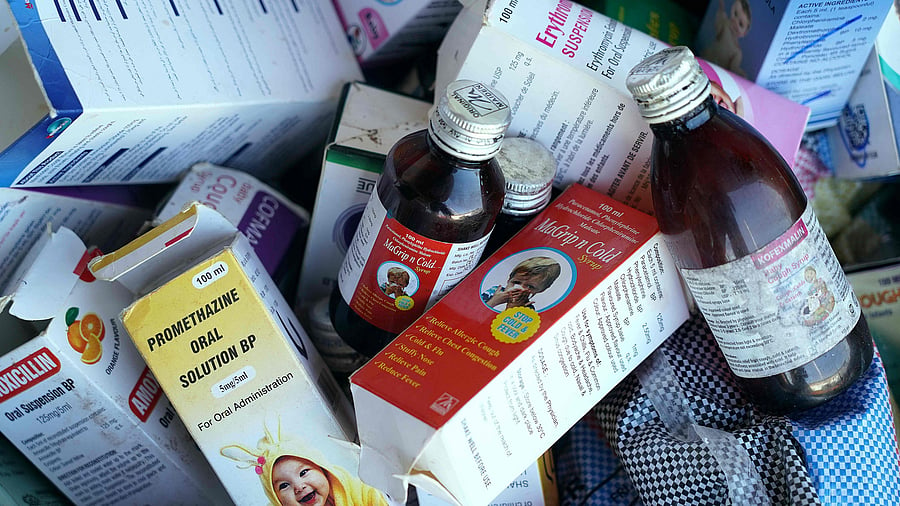
Cough syrup bottles.
Bengaluru: As India rides a growing cough syrup wave, doctors warn that addiction among adults is becoming hard to ignore.
They say easy access, affordability, and the presence of alcohol-like elements are driving the trend.
In Bengaluru, physicians are increasingly turning to nebulisation for asthma patients with recurring cough to reduce dependency on syrups.
Codeine, an opium derivative found in many cough syrups, provides intense relaxation and pain relief, prompting users to consume it repeatedly.
"Cough syrup is very easy to get addicted to, and the relapses are higher compared to other addictions as withdrawals are hard,” said Dr Divyashree, consultant psychiatrist.
Addiction often begins during an illness when the syrup is prescribed for a cough. The temporary euphoria encourages users to consume more, leading to dependence. As dosage increases, aerotolerance builds, and people soon find they cannot function without it, she added.
Many pharmaceutical companies have replaced codeine with dextromethorphan, a milder suppressant. However, some dry cough syrups still contain codeine. “Even dextromethorphan can be dangerous if taken in high quantities,” said Dr Nidhin Mohan, physician.
He said doctors now prescribe tablets as substitutes, and cases of overdose are referred to psychiatrists for further care.
"The impact of addiction leads to chronic constipation, drowsiness, depression and serious side effects if there are cardiac issues,” warned Dr Ravindra Mehta, pulmonologist.
De-addiction
Unlike alcohol, cough syrup dependency cannot be stopped abruptly. Withdrawals are severe, with symptoms such as body pain, diarrhoea, vomiting, watery eyes, and nose. These symptoms often push patients back into addiction.
To aid recovery, psychiatrists sometimes use Opium Substitution Therapy. In this method, medical-grade opium tablets are prescribed to gradually replace the syrup and help patients stabilise.